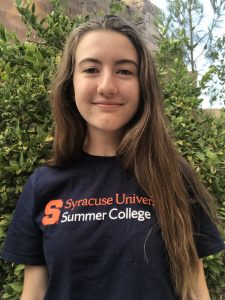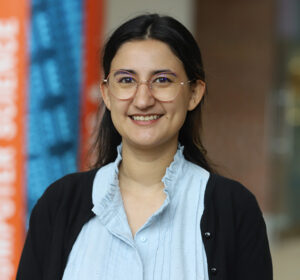Course Overview
This summer course introduces high school students to the exciting world of aerospace engineering. Students will explore the basic principles of flight, including how airplanes, rockets, and drones work, through hands-on activities and experiments. They will engage in teamwork-oriented projects, building and testing models of airplanes, and rockets. Additionally, students will have the opportunity to visit aerospace facilities and hear from guest lecturers, including professors and industry specialists, who will share their expertise and insights into the aerospace field. The course will also cover various careers in aerospace engineering, from design and research to operations, and examine the history and recent developments in the industry, including current news and trends. By the end of the course, students will have a strong foundation in aerospace engineering and a deeper understanding of its applications and career opportunities.
All students who successfully complete the course will receive a Certificate of Completion and have the opportunity to request a Syracuse University noncredit transcript.
Learning Objectives
After taking this course, students will be able to:
- Demonstrate an understanding of the basic principles of flight for airplanes, rockets, and drones, explaining how forces such as lift, thrust, drag, and gravity affect flight performance.
- Explain the key engineering technologies and innovations that enable the design and function of aircraft, spacecraft, and unmanned aerial vehicles (UAVs).
- Identify and describe various career paths in the aerospace industry, including roles in engineering, research and development, and operations in aviation and space exploration.
- Apply teamwork skills through collaborative projects, working effectively in groups to solve engineering problems and simulate real-world aerospace scenarios.
- Design, build, and test models of airplanes, or rockets, using principles of aerospace engineering to guide hands-on activities and experiments.
- Research and discuss the history and current trends in aerospace engineering, demonstrating knowledge of significant milestones in aviation, space exploration, and UAV technology, as well as staying informed about the latest news in the field.
Course Information
Course Prefix and Number: SCN 037
Format: On Campus (at Syracuse University)
Eligibility: Students must be of rising high school junior or senior status – or a 2026 high school graduate.
Credit: Noncredit
Grading: Pass/Fail
- Residential: $4,995
- Commuter: $4,024
Program rates are subject to change and will be approved by the board of trustees. Discounts and scholarships are also available.
Program Information
Summer College – On Campus: Experience what college is really like: take a college-level course, live in a residence hall, have meals with friends in a dining hall, and participate in activities and events on campus.

“The Aerospace Engineering course heightened my resolve to study engineering in college. It provided me with the perfect opportunity to study aerospace engineering before filling out my college applications. I now plan to apply for college with a major in mechanical and/or aerospace engineering. I would have most likely applied with an undeclared major if it were not for Syracuse University Summer College – Online.”
— Maia M., Summer College – Online Aerospace Engineering Student, 2020
Course Dates and Details
| Program | Course Dates | Class Time (Eastern Time) | Credit/Noncredit |
|---|---|---|---|
| Summer College – On Campus | 2-Week Session I: Sunday, July 5 – Friday, July 17, 2026 | MTWThF; 9 a.m. – 12 p.m., 1 p.m. – 4 p.m. | Noncredit |
| Summer College – On Campus | 2-Week Session II: Sunday, July 19 – Friday, July 31, 2026 | MTWThF; 9 a.m. – 12 p.m., 1 p.m. – 4 p.m. | Noncredit |
To see if this course is ‘open,’ refer to the full course catalog.
Course Requirements
Required Textbooks & Supplies
Supplies:
- Students will be required to bring their laptop to class daily
- Microsoft Office Suite (Microsoft Office download provided to enrolled students)
- Supply kit will include materials to build water rockets and model airplanes, balsa wood airplanes, toy helicopter launchers, etc.
Typical Day
Tentative Schedule
“Morning sessions will usually include lectures with the instructor or guest lecturers.
Afternoon sessions will focus on hands-on activities like designing, building, and testing models or airplanes or rockets.
Special days will include trips to museums/airports, using the SU flight simulator, or doing teamwork activities. “
When class is over, and on weekends, students can look forward to various Summer College – On Campus activities to meet and connect with other students! Check out our On Campus Experience page for more information!
Instructor Bio
Dr. Karen Martinez Soto

Dr. Karen Martinez Soto is an Assistant Teaching Professor in the Mechanical and Aerospace Engineering department at Syracuse University. Her research focuses on the development of aerospace curricula that support conceptual understanding, particularly in Sophomore and Junior level courses. This research includes the study of how to teach and assess student’s understanding and mastery of difficult engineering concepts. Her aerospace background focused on dynamics and control of atmospheric vehicles, particularly unmanned multi-rotor aircraft.
